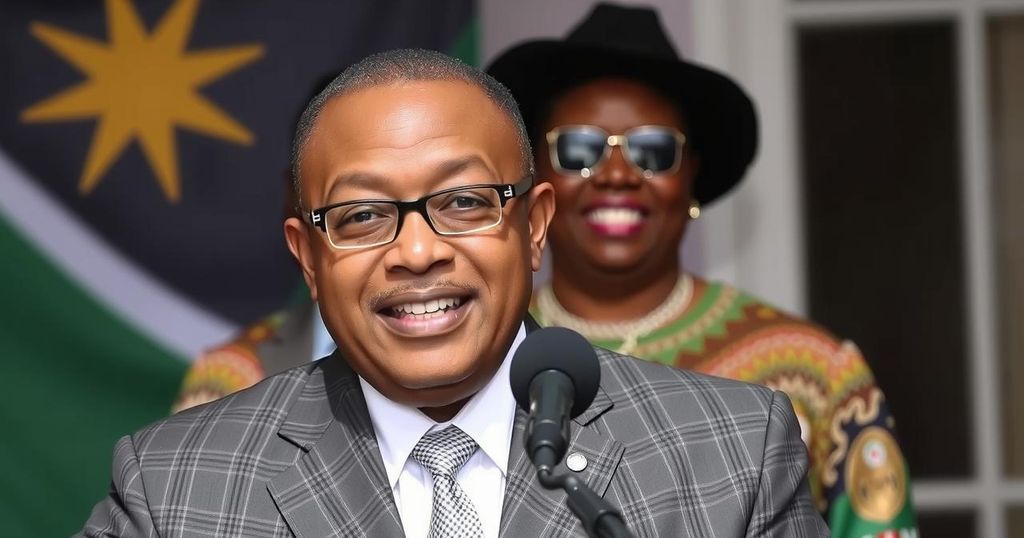Namibia Elections: Opposition IPC Declares Non-Recognition of Results

Namibia’s main opposition party, the IPC, announced it will not recognize the recent election results due to alleged electoral malpractices and logistical problems. Presidential candidate Panduleni Itula criticized these issues and called for calm while pursuing legal action. In ongoing counts, Swapo’s Netumbo Nandi-Ndaitwah leads with 48% of the votes, but the election’s irregularities could lead to a runoff.
The Independent Patriots for Change (IPC), Namibia’s leading opposition party, has declared that it will not accept the results of the recent general election, citing significant logistical issues and alleged electoral misconduct. Presidential candidate Panduleni Itula criticized the election as fraught with “glaring and undeniable” malpractices, arguing that the electoral commission’s failures compromised the process. Voting, which began on Wednesday, extended through Saturday due to shortages of ballots and technical failures, hampering participation in this pivotal election. In partial results released thus far, the South West Africa People’s Organisation (Swapo)’s candidate, Netumbo Nandi-Ndaitwah, currently leads with 48% of the votes compared to Itula’s 30%. Unless a candidate receives a majority, a runoff election will be necessary. Swapo has held power since Namibia gained independence in 1990, but it faces declining support, akin to challenges faced by other longstanding liberation parties in the region. The IPC intends to seek legal recourse and has urged voters affected by electoral mismanagement to report their experiences to law enforcement.
Namibia has held its general elections against a backdrop of political tension and allegations of electoral malfeasance. The IPC is contesting against the ruling Swapo party, which has dominated the political landscape since the nation’s independence. The controversy surrounding this election underscores the broader trend of declining popularity for traditional political parties in southern Africa, paralleling similar sentiments in South Africa and Botswana.
The refusal of the IPC to recognize the election results highlights a critical moment in Namibia’s democratic process, calling attention to significant electoral challenges. As counting progresses and the potential for a runoff looms, the IPC’s assertions of electoral mismanagement could further complicate the political landscape. This situation reflects broader regional trends of declining support for established parties and raises questions about the integrity of electoral processes in the region’s developing democracies.
Original Source: www.bbc.co.uk








